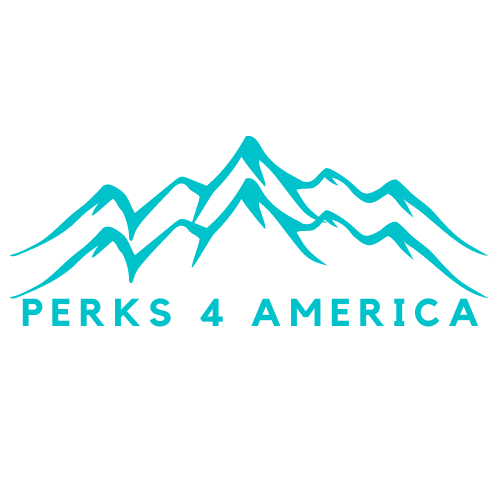This article aims to explain what homeowners insurance covers and what it doesn’t. We’ll review the details and inquiries that might be particularly important to you. You might wonder, for instance, if a standard homeowners insurance policy covers destruction from termites, mold, and roof leaks or if you’re protected if your dog attacks a guest. We’ll also draw attention to topics that aren’t usually covered. We’ll also discuss how a homeowner’s insurance provider pays out a claim, how to prepare for it, and what to expect when filing a claim.

Regular Homeowners Insurance Protection
A typical homeowners insurance policy will pay for replacing or repairing your house and its contents in the event of damage. That typically includes harm brought on by fire, smoke, theft, vandalism, or natural disasters like thunderstorms, air currents, or hail. Other covered damage might result from outside forces, like a tree falling.
Your home’s heating and cooling systems, kitchen equipment, furniture, garments, and other valuables are all covered by this insurance. Your home’s outbuildings, such as garages, barns, sheds, outdoor fireplaces, grills, swing sets, walls, or fences, are also covered. Other recreational equipment, such as a pool, may also be covered but may need additional liability insurance due to their higher risk.
Additionally, your living expenses are typically covered when considering alternative housing while your shelter is being rebuilt. In most cases, liability protection is also included. If visitors not residing in your residence are hurt on your property, you will be compensated for their medical bills and attorney fees.
It’s critical to comprehend the specifics of your policy and the level of protection you can anticipate in the case of a claim. While many times that won’t be less to renovate your home and replace everything there, some lenders only require enough homeowners insurance coverage to pay your mortgage.
Rebuilding costs may also rise in the future. Your home may need more protection if you make improvements or additions, if labor or material costs rise, or if zoning regulations change.
Replacement cost or Actual cost, which is better?
For these reasons, replacement cost homeowners insurance might be a better option than actual cash value. The former offers coverage for current-cost repairs or replacements for your residence and its contents. Age-related, weather-related, and other types of depreciation are taken into account by cash value policies.
For Instance;
Consider the scenario where a tree falls and harms your building, which the replacement cost policy covers. The replacement cost policy will cover the cost of labor and materials to fix the roof. Ten years of depreciation will be subtracted from an actual cash value. Your furnace, washer and dryer, and other assets follow the same reasoning.
Understand the distinction between an actual cash value policy and a replacement cost policy. You receive less when filing a claim because the former pays the depreciation expense cost. You might pay 10 to 15% more for replacement cost coverage, but you get a lot more when you make a claim.
How to estimate homeowners insurance coverage?
To determine your required homeowner’s insurance coverage, multiply the home’s square footage by the neighborhood building costs per square foot. For instance, if your property is 2,200 square feet, and local building costs are $80 per square foot on average, it would cost about $166,000 to rebuild. Costs in your area should be easier to ascertain with the aid of a local insurance agent. Any outbuildings will have their costs determined in the same manner.
Next, list everything you own and assign a rough value to each item. To keep a visual record, take pictures or videos. Keep a record of the places and times from where you bought the items in your inventory, particularly the expensive ones. It will help you figure out how much insurance you need and what things might need extra protection.
FAQs
Does Mold Damage Fall Under My Homeowners Insurance?
In general, homeowner’s insurance doesn’t cover mold. Some companies only provide limited coverage for mold damage, for instance, if it results from a covered occurrence like a pipe burst. Mold damage is typically not covered if it is determined as a result of poor maintenance.
Do Roof Leaks Fall Under Homeowners Insurance?
Roof leaks brought on by a covered event, like a storm or hail, are typically covered by standard homeowners insurance policies. In that situation, the insurance will also cover repairs. Lack of maintenance could lead to damage repair costs not being covered.
Does Water Damage Get Covered by Homeowners Insurance?
A typical homeowners insurance policy covers water damage from malfunctioning washing machine hoses and burst pipes. The caveat is that damage brought on by poor maintenance needs to be covered. A typical policy does not cover flood insurance or backups caused by clogged drains or malfunctioning sump pumps. These coverage might come with an additional fee.
Does Termite Damage Fall Under Homeowners Insurance?
Termite damage is typically considered avoidable and brought on by the homeowner’s neglect or improper upkeep. Some insurance companies may offer coverage in specific situations, such as a fire brought on by termites gnawing through wiring.
Does Theft Get Covered by Homeowners Insurance?
Standard homeowners insurance policies typically cover losses resulting from theft and vandalism, but each policy has a maximum payout limit. There may need to be more than the standard policy to cover valuable items such as jewelry, artwork, or collectibles.
Does homeowners insurance cover plumbing problems?
As long as the damage was not brought on by poor or insufficient maintenance, a standard homeowners insurance policy will typically cover a burst pipe or a broken water heater. There may be no coverage for leaks if they occur slowly over time.
This content is for informational purposes only and may not be applicable to all situations.
